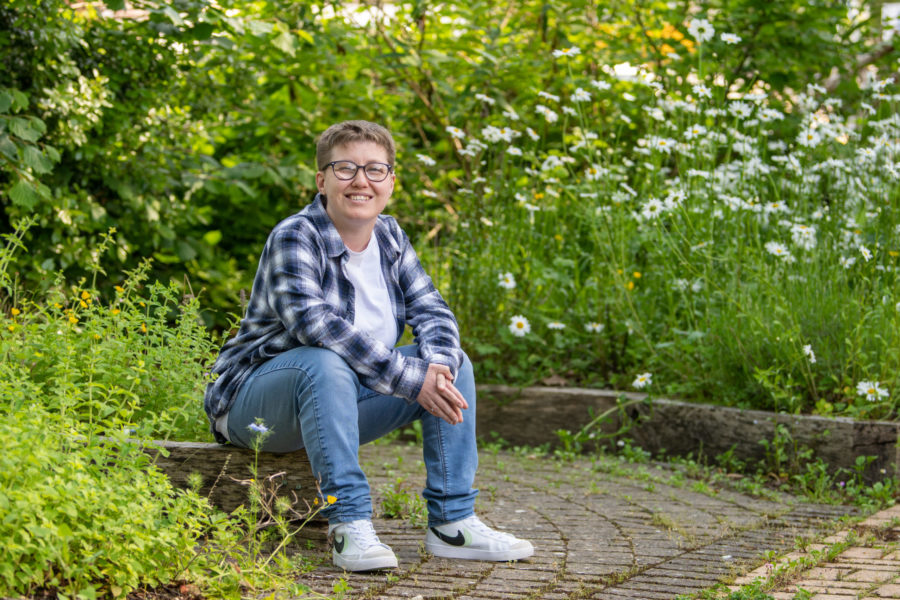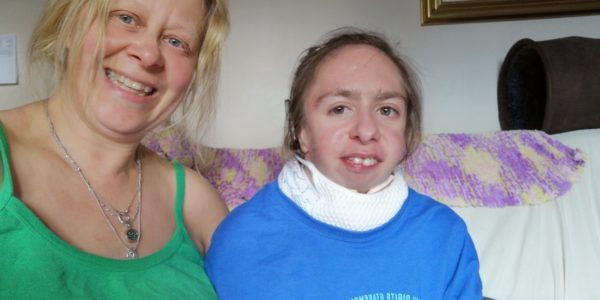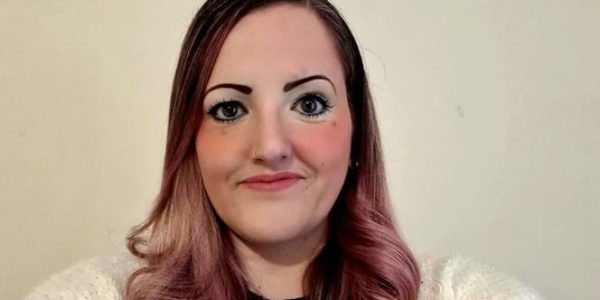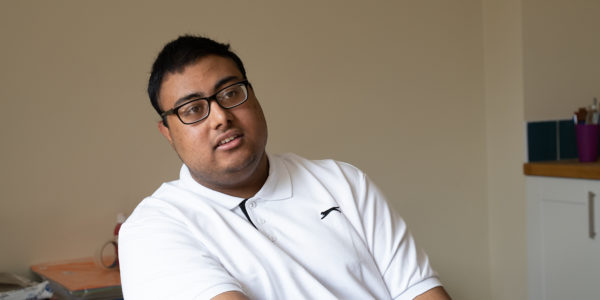Left Out of Life: tackling loneliness among disabled people
Almost two thirds of the 14.1 million disabled people living in the UK are chronically lonely.
We believe that no one, no matter how complex their disabilities, should be left out of life. We’re calling on the government, individuals and communities to come together to make our local areas more welcoming and accessible.
Think, Ask, Include
41% of disabled people didn’t feel supported by their local community during the Covid-19 pandemic.
Will you play your part and Think, Ask, Include to make your local community more welcoming for disabled people?
Watch our campaign film
Transcript for the Think, Ask, Include campaign film
My name is Emma Blackmore.
So when I was born I was diagnosed with congenital rubella syndrome which resulted in me having hearing loss and eyesight loss along with various other complex needs.
So, if someone really wanted to make the changes where accessibility hasn’t been great, I would highly just say, come and reach out.
We won’t bite, we just want to help try and make the changes so you can have more people come and enjoy it.
My name is Maria. I’m supported by Sense and use the swimming pool and enjoy the cafe.
I know hearing people won’t sign to me and I need my mum and dad there to sign, but it would be nice if people addressed me and spoke to me.
My name is Saihan Islam and I know Sense for the Budding Scheme.
My buddy helps me and takes me out to do activities because I find it hard because of my difficulties.
I’ve got this condition that I find it hard to move around and get around places.
If the tables can be a lot more spaced apart and sort of, like, more walking space and for the staff to be trained in autism and other issues that people have.
My name’s Helen Conway.
I’ve been involved with Sense since my children were babies.
So, Ernie has Down syndrome. He’s also classed as visually impaired.
He has a learning disability and communication issues.
I think as a family you just want for the waiting staff not to be afraid to talk to Ernie himself or just get involved with him.
There’s nothing to be afraid about.
So sometimes you think, you know, could there be a little quiet area that wouldn’t necessarily take up any extra room in the restaurant, but somewhere that you could think about acoustics.
My name is Elliot Beaton.
I was born premature by two months and since then I’ve unfortunately lost my hearing.
I think I was six years old, I was diagnosed with an eye condition called uveitis.
When you’re reading the menu in a restaurant, a lot of it tends to be small print and it’s in a dark environment with very limited light.
The way forward is that you have the table number and you just use your phone and you can look at the menu and what you want which is adaptable for your needs and you’ll order it from the app and you don’t have to deal with any difficult questions, you don’t have to feel under pressure from choosing from the menu when there’s something really small printed.
My name is Natalie Williams.
I’m connected through Sense because I have Usher syndrome which is deafblind.
One particular restaurant I went to is a place where you get up and do your own salad.
There’s only lighting directly on the food.
I do feel like there could be more improved lighting.
If it was lighting around, that would be good.
Just keep trying and do what you can to make people feel included and make people want to come out and just show that you’re willing to do anything you can to help them.
Two thirds of disabled people experience loneliness.
Over half say they would feel less lonely if their local community was more inclusive.
Learn how at sense.org.uk/LeftOutOfLife
Sense.
No one left out of life.
sense.org.uk
4 easy ways to make a space more accessible
- Speak clearly, and straight to who you’re talking to (not their interpreter or guide)!
- Make sure there’s enough space for wheelchair users or anyone with mobility issues.
- Keep the space well-lit for people with visual impairments.
- Turn down the volume of background noise.
Read more about how to make your community more accessible
Watch our top accessibility tips!
Transcript of the Top Tips film
My name is Emma Blackmore.
So when I was born I was diagnosed with congenital rubella syndrome which resulted in me having hearing loss and eyesight loss along with various other complex needs.
So, if someone really wanted to make the changes where accessibility hasn’t been great, I would highly just say, come and reach out.
We won’t bite, we just want to help try and make the changes so you can have more people come and enjoy it.
My name is Maria. I’m supported by Sense and use the swimming pool and enjoy the cafe.
I know hearing people won’t sign to me and I need my mum and dad there to sign, but it would be nice if people addressed me and spoke to me.
My name is Saihan Islam and I know Sense for the Budding Scheme.
My buddy helps me and takes me out to do activities because I find it hard because of my difficulties.
I’ve got this condition that I find it hard to move around and get around places.
If the tables can be a lot more spaced apart and sort of, like, more walking space and for the staff to be trained in autism and other issues that people have.
My name’s Helen Conway.
I’ve been involved with Sense since my children were babies.
So, Ernie has Down syndrome. He’s also classed as visually impaired.
He has a learning disability and communication issues.
I think as a family you just want for the waiting staff not to be afraid to talk to Ernie himself or just get involved with him.
There’s nothing to be afraid about.
So sometimes you think, you know, could there be a little quiet area that wouldn’t necessarily take up any extra room in the restaurant, but somewhere that you could think about acoustics.
My name is Elliot Beaton.
I was born premature by two months and since then I’ve unfortunately lost my hearing.
I think I was six years old, I was diagnosed with an eye condition called uveitis.
When you’re reading the menu in a restaurant, a lot of it tends to be small print and it’s in a dark environment with very limited light.
The way forward is that you have the table number and you just use your phone and you can look at the menu and what you want which is adaptable for your needs and you’ll order it from the app and you don’t have to deal with any difficult questions, you don’t have to feel under pressure from choosing from the menu when there’s something really small printed.
My name is Natalie Williams.
I’m connected through Sense because I have Usher syndrome which is deafblind.
One particular restaurant I went to is a place where you get up and do your own salad.
There’s only lighting directly on the food.
I do feel like there could be more improved lighting.
If it was lighting around, that would be good.
Just keep trying and do what you can to make people feel included and make people want to come out and just show that you’re willing to do anything you can to help them.
Two thirds of disabled people experience loneliness.
Over half say they would feel less lonely if their local community was more inclusive.
Learn how at sense.org.uk/LeftOutOfLife
Sense.
No one left out of life.
sense.org.uk
Over 1,000 disabled people surveyed in the UK said that the best way to tackle social isolation would be to:
-
Improve public understanding and awareness of disability.
-
Introduce more community activities where people can meet.





